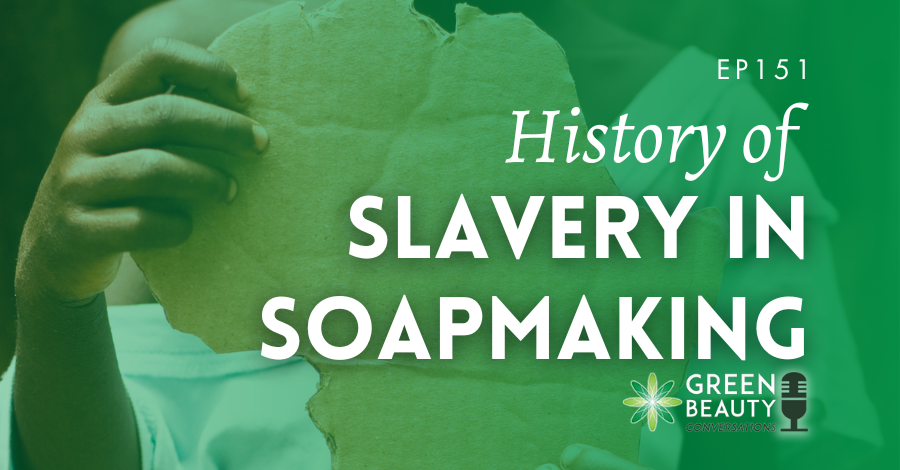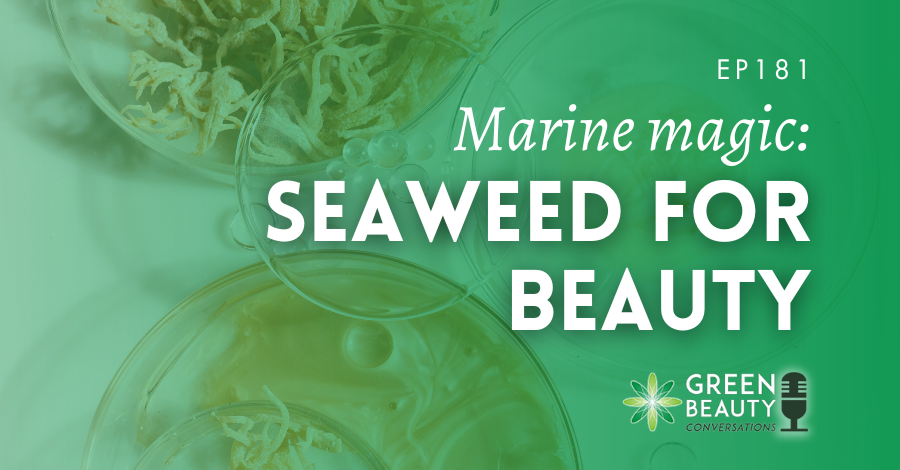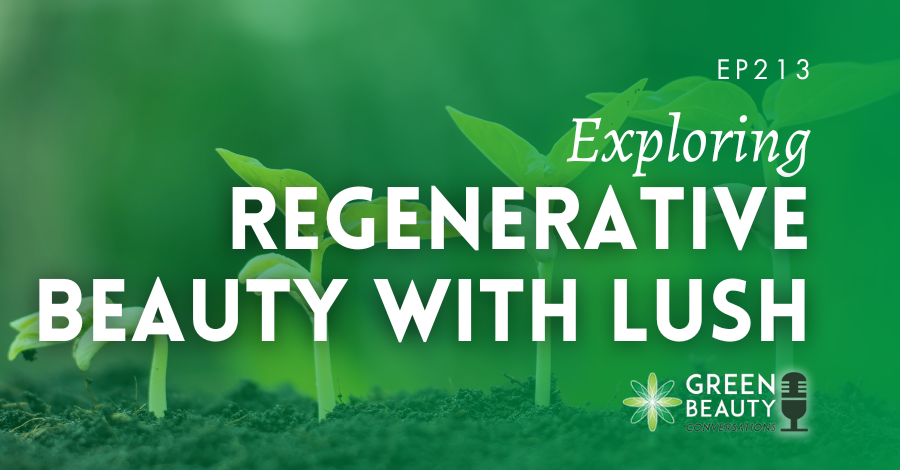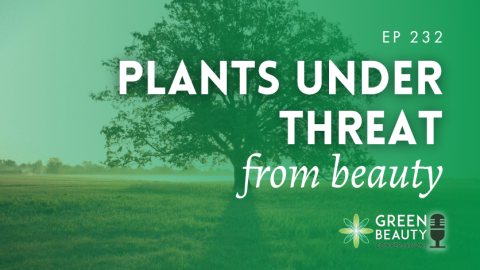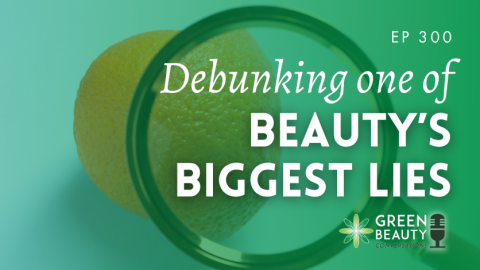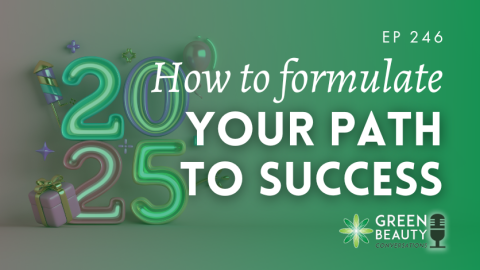Soap has been the mainstay of personal care for millennia, but in recent years, it has gone from a household commodity to a luxury cosmetic in homes and hotels.
Soapmaking is thriving as an artisan hobby and has also launched many entrepreneurial beauty businesses. Formula Botanica graduate Sandra Velasquez started her Latinx heritage bath and body brand Nopalera in 2020, helping elevate soap to new heights. Sandra has raised several million dollars in funding, seen Nopalera stocked in major US retailers, and has been featured in Forbes magazine and on network TV.
But, let’s just stop for a moment. Do we ever ask ourselves about the history of soap? It is worth doing so as there is a whole era of soapmaking that has been almost erased from the records of social history. In this episode, Formula Botanica CEO and podcast host Lorraine Dallmeier discovers the murky past of soapmaking with guest Dr Candace Parrish, whose studies in public relations, health communication, and visual communication led her to unearth a shameful period of American history and its enslaved soapmakers. Candace went on to create her soap and candle brand Odelia, Marie & Patrice to honour the legacy of African-American soapmakers and as a platform to support activism for Black and people of colour in America today.
Soapmaking has a shameful era in its past. @FormulaBotanica podcast guest Dr Candace Parrish @_OMandP_ unearths the voices and legacy of enslaved African-American soapmakers. #soapmaking #artisansoap #sustainablebeauty Share on X
In this episode on the history of slavery and soapmaking, you will hear about:
- The history of soapmaking, from its origins in Nigeria, Africa, to the US, where plantation slaves laboured in abysmal conditions making soap.
- How recipes for making black African soap, which is so sought-after today, would have been passed down among women in indigenous Nigerian communities in centuries past and travelled with African slaves to the Caribbean and the USA.
- How soap and candle making were slaves’ duties on the plantation estates. Once slavery was abolished, some former slaves and their descendants would use their expertise in soapmaking as an opportunity to make a small income and, in some cases, start their own businesses.
- Former slaves and their descendants contributed to creating an entrepreneurial middle class in America, but this fact is barely recorded. Dr Parrish suggests that the rise in white-owned corporations was partly responsible, as their agenda was to instill the idea that personal care products should be made in the lab and not at home.
Key takeouts include:
- Candace Parrish created Odelia, Marie and Patrice not to be “just another beauty brand”. She feels passionately that small beauty brands have a role to play in highlighting issues, whether those clearly linked to activist causes or international issues such as sustainability.
- Black and people of colour in the States face immense problems raising finance for their entrepreneurial start-ups.
- The Black Lives Matter movement raised awareness of the systemic racism and discrimination that are endemic in the US – and elsewhere in the world. However, Dr Parrish feels the economic downturn has seen a waning in the momentum for change.
- By buying from a small, entrepreneurial Black-owned business, you are helping lift lives today and acknowledging the important contribution of the culture, history, heritage and legacy of African Americans.
Meet our guest

After being recognised nationally and internationally for her research, she decided to combine her love for design and artistry with her research in health communication to make vegan, small-batch, environmentally friendly, and luxury self-care products. In 2020, Odelia, Marie & Patrice received a grant from Beyoncé and the National Association for the Advancement of Colored People (NAACP) to continue to fund the launch of the organisation. Through Odelia, Marie & Patrice (OM&P), Candace also helps to support minority community activism and social movements like prison reform and has been featured in Forbes in relation to these efforts.
Find out more about Candace and OM&P on their website, at Odelia, Marie & Patrice on Instagram and Candace Parrish @Chic_and_vegan.
If you enjoyed this discussion with Candace Parrish, do dive into our podcast archives for related episodes, including:
Episode 101 with Dija Ayodele on why Black skincare matters.
Episode 55 in which we discuss African-American makeup and green makeup with panelists Kim Roxie and Sammy Kolk.
Episode 68 with make-up artist Eryka Freemantle on diversity in the beauty industry.
Thank you for joining us for this episode of the Formula Botanica Green Beauty Conversations podcast. If you enjoyed listening, please share, subscribe and review this episode on Apple Podcasts, Spotify or Youtube so that more people can enjoy the show. Don’t forget to follow and connect with us on Facebook and Instagram.
FREE TRAINING
Learn how to become an
Organic Skincare Formulator
FREE TRAINING
How to become an
Organic Skincare Entrepreneur
FREE TRAINING
How to become an
Organic Skincare Entrepreneur
Leave us a comment
Lorraine Dallmeier is a Biologist, Chartered Environmentalist and the CEO of Formula Botanica, the award-winning online organic cosmetic science school. Read more about Lorraine and the Formula Botanica Team.

